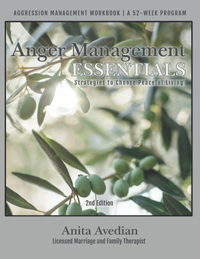Anxiety is a psychological response to future events that have not occurred. It can also be characterized by physical and emotional symptoms. Anxiety is considered a normal reaction to a stressor (i.e. job interview, important exam, etc.): it helps an individual deal with a demanding situation by allowing them to cope with it. However, when anxiety becomes excessive and begins to interfere with daily functioning and responsibilities, it is classified as an Anxiety Disorder.
There are a few subcategories of Anxiety Disorders:
- Agoraphobia
- Panic Disorder With/Without Agoraphobia
- Specific Phobia
- Social Phobia
- Obsessive-Compulsive Disorder
- Posttraumatic Stress Disorder
- Acute Stress Disorder
- Generalized Anxiety Disorder
Some symptoms of Anxiety Disorders are as follows:
- Excessive anxiety and worry, occurring more days than not
- Finding it difficult to control worry
- Restlessness or feeling on edge
- Being easily fatigued
- Difficulty concentrating
- Irritability
- Muscle tension
- Sleep disturbance
- Feelings of panic, fear, and uneasiness
- Uncontrollable obsessive thoughts
- Cold or sweaty hands and/or feet
- Shortness of breath
- Palpitations
- Inability to be still and calm
- Numbness or tingling
Anxiety, different from fear, is a mood that can occur without any particular stimulus; fear is an appropriate response, both cognitive and emotional, to a perceived threat. The main difference between the two is that anxiety concerns an event that has not taken place yet.
Once Anxiety is diagnosed, you would have several treatment options. Some of those options include the following:
- Individualized counseling – these counseling sessions help an individual become more aware and better able to cope with their problems. It provides support and help by examining some of the underlying reasons of anxiety. There are many methods of therapy including Cognitive, Behavioral, and Psychoanalysis.
- Psychotherapy and support groups – support groups are a great option to relate to and connect with others. Group members learn from each other. Oftentimes this option helps to not feel alone.
- Medication – medications are used to treat severely anxious people. It helps to correct the imbalances of certain brain chemicals.
- Alternative therapy (Though Field Therapy, Acupuncture, Natural Remedies) – Though Field Therapy provides a quick relief of symptoms. Recently, people have been trying alternative methods prior to medication.
- Educational classes – Offers material to help one learn to understand and cope with Anxiety.
- Self-Care – Learning to pay attention to one’s lifestyle, eating, and exercising habits.
Anita Avedian, MFT, has been working with individual suffering from Anxiety for many years. Individual therapy is offered to help one learn about coping skills, problem solving, learning ways to increase motivation, and understanding underlying causes of one’s anxiety.



